Ten years of conflict. Ten refugee experiences
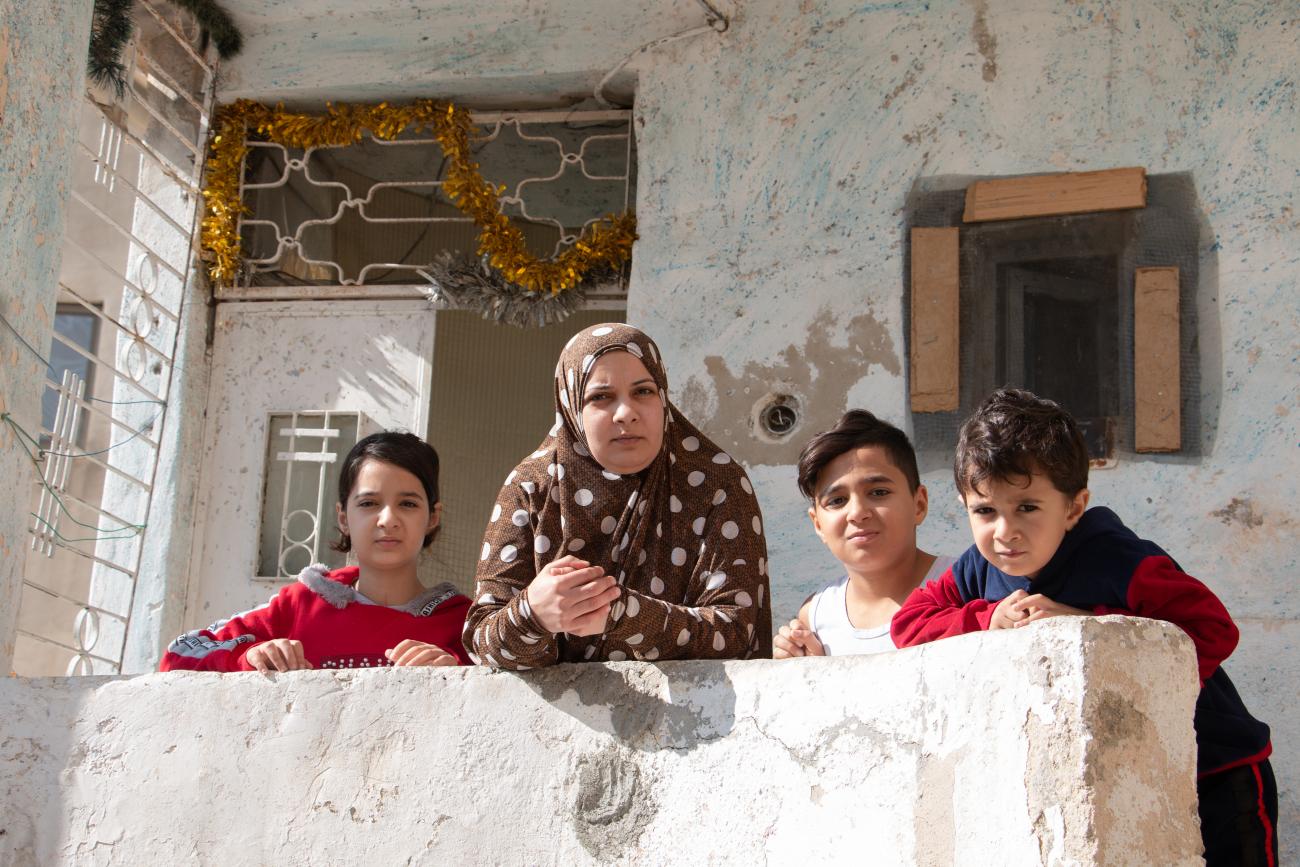
As the Syria conflict marks its tenth year, refugees in Jordan speak out about their hardships and their hopes.
Khaled
“In the past, we could not afford canned food to feed the kids.”
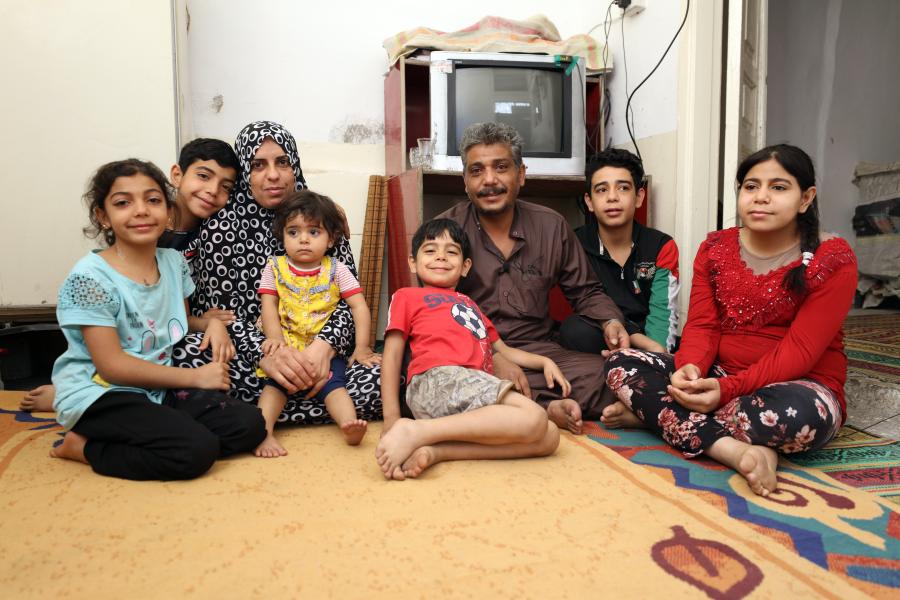
In 2013, Khaled, 38, and his wife, 32, fled Aleppo to protect their children from war. When they reached Jordan, their only belongings were the clothes they were wearing. Khaled found a job but earned only enough to pay the rent. Their lives improved when they started receiving cash assistance from the World Food Programme (WFP) in 2014. When the pandemic hit, Khaled lost his job, “expenses started piling up, and now I can’t pay my bills,” he says. He’s in the same bind as 82% of refugee households in Jordan that have reported reduced income since the start of the pandemic. The parents’ only wish now is to find a place where they can raise their kids in peace.
Ahmad
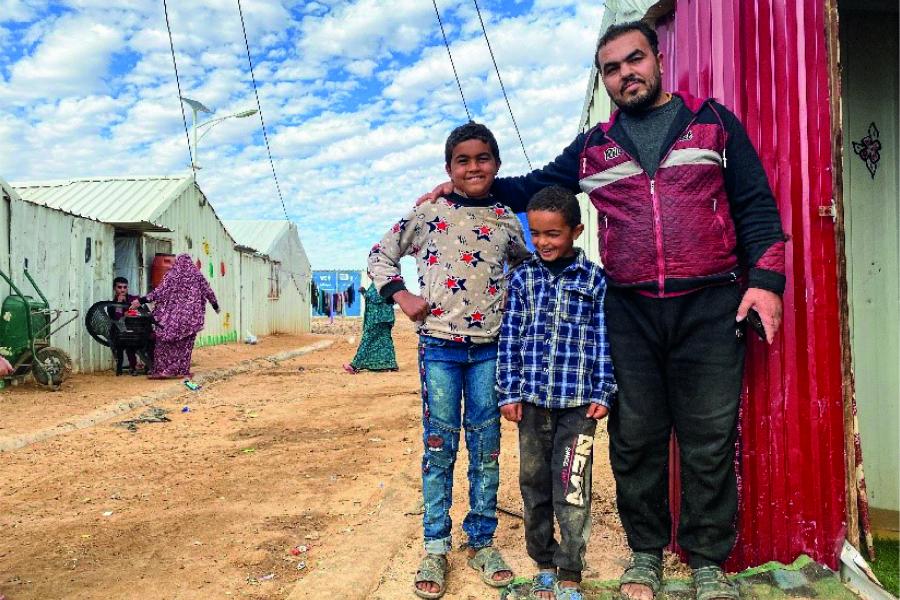
“The pandemic has been really hard on everyone, especially in the camp.”
Ahmad, 44, a Syrian refugee from Daraa, sought refuge in Jordan in 2013, with his wife and one-year-old son, Omar. “It was not an easy decision, but I had to make it after seeing the fear in Omar’s eyes when bombs were falling.” In Jordan, Ahmad and his wife have made ends meet with their savings and jobs. They had a second son. “The pandemic has been really hard on everyone, especially in the [Azraq refugee] camp. There are barely any jobs, my children are out of school, and we’re afraid for our health,” says Ahmad. He’s grateful for the assistance from WFP but explains that it’s not enough. Like 52% of refugees, Ahmad has had to limit his own food intake to prioritise that of his children.
Amal
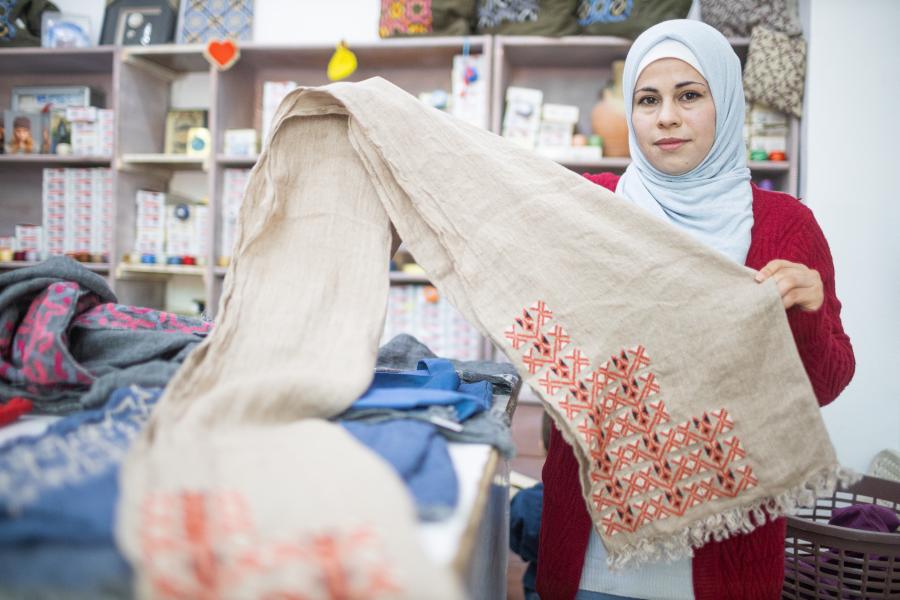
“While I’m creating, I don’t think about all the other problems in my life.”
Amal, 33, left her home in Daraa, Syria, when fighting first broke out at the beginning of the conflict. “I had just graduated from art college, I wanted to become an artist,” she says. “But we had to leave, and our lives completely changed.” Since finding safety in Jordan, she got married and had a son, Yousef, 4. Shortly after Yousef was born, Amal became part of SEP, a social enterprise to support refugees in Jordan through training and employment. She took classes in embroidery and became one of almost 500 women to work as part of the project. “While I’m creating, I don’t think about all the other problems in my life. It’s given me hope.”
Ammar
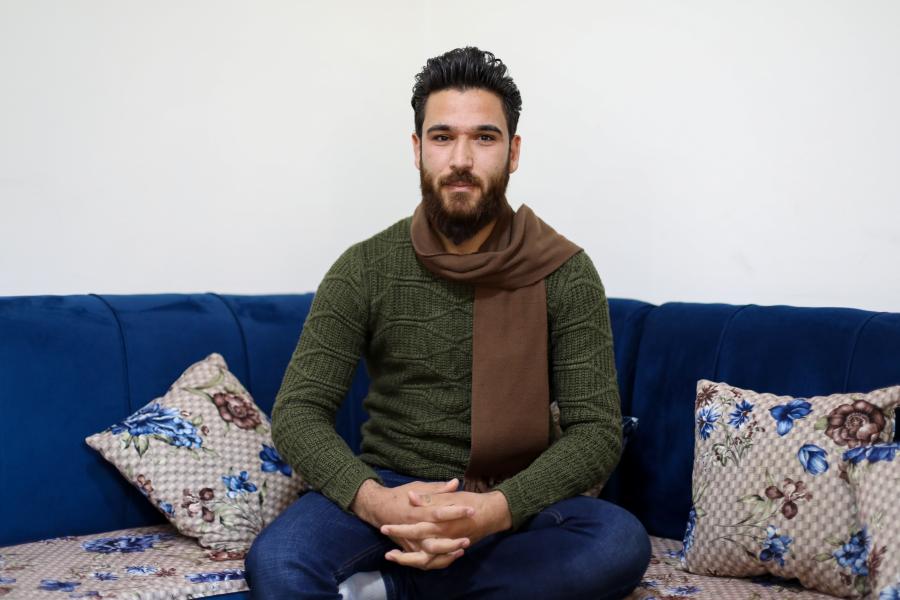
“I want to start my own company but it’s difficult to know where to begin.”
At 25 years old, Ammar has spent the majority of his youth as a refugee. After fleeing his home in rural Damascus in 2013, he completed high school in Jordan before being awarded a scholarship to study computer science, and is now a skilled Android app developer. However, due to the COVID-19 pandemic he is currently unemployed. Ammar’s dream is to start a company which provides vocational training to recent graduates like himself. “I’m always thinking two or three years into the future,” he says. “The conflict taught me that we can only depend on ourselves.”
Kawthar
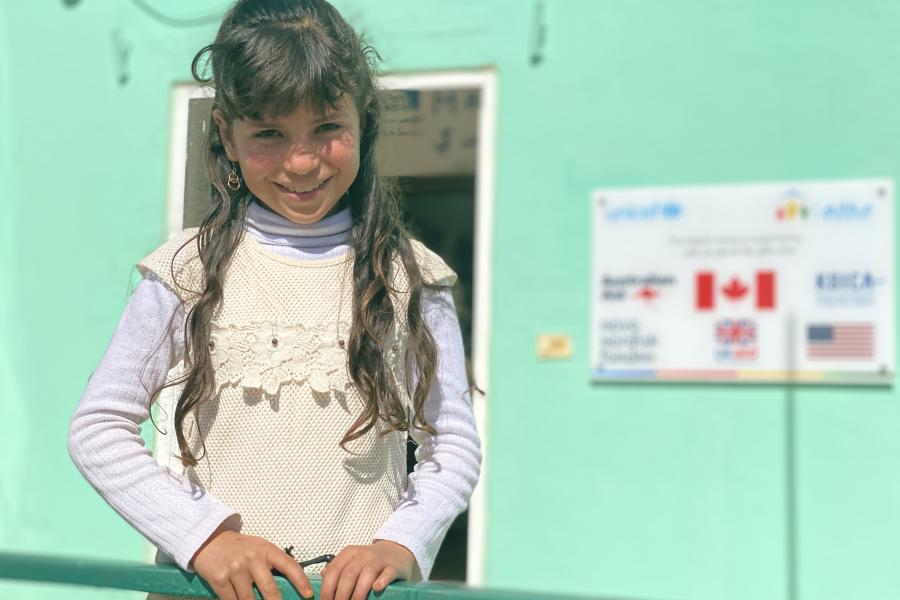
“I consider myself a lucky and happy girl, because I have a mom and a dad.”
Kawthar, age 10, is as old as the Syrian conflict. She doesn’t remember her home but regularly talks to her uncles and grandparents, who still live there. “I am always scared for them,” she says. “But when I talk to them, I feel happy because they usually spoil me and give me happy nicknames.” Kawthar’s father works in construction, but the opportunities are limited and the family is struggling. “I don’t have toys, but it’s okay. I play with my younger siblings a lot,” she says. When she’s not in school, Kawthar spends time in UNICEF’s Makani centres, where she is learning Arabic, English, and mathematics. She dreams of becoming a judge, to create a more just world.
Laila
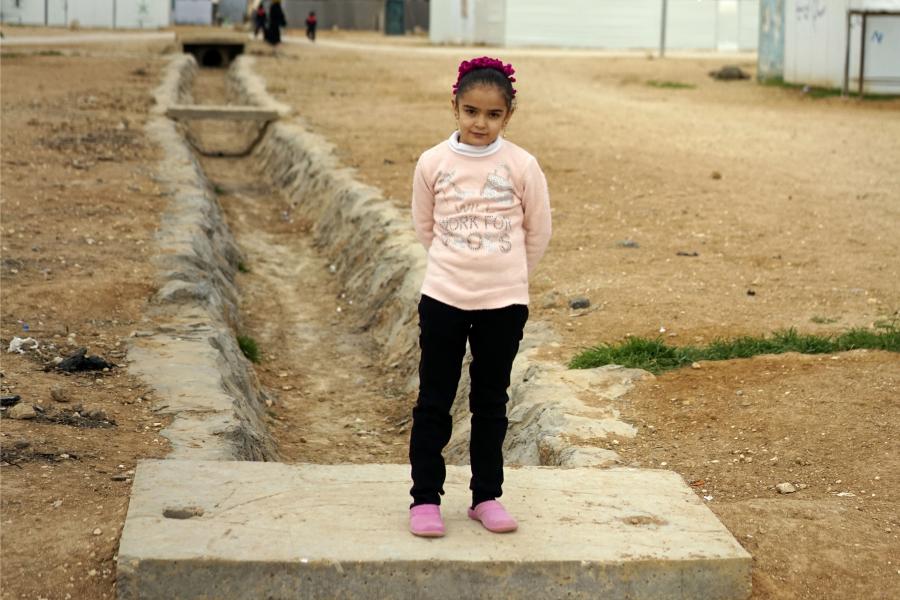
“I ask my father when we will be able to go back to Syria... he tells me that we will one day, when war is over.”
Laila, 10, and her family left their home in Homs, Syria, when Laila was just one year old. She doesn’t remember it now, but says her father speaks of how beautiful Homs was. “Syria is my country, the place where I was born.” Laila and her family have lived in Zaatari camp since they arrived in Jordan. School has been closed in the past year due to COVID-19. “I really miss my friends and especially my teacher,” Laila says. She dreams of becoming an astronaut and speaks passionately about space. “My favourite planet by far is Earth, because we all live on it, and it has the air that we breath, the water that we drink, but we have to take care of it more.”
Mohammad
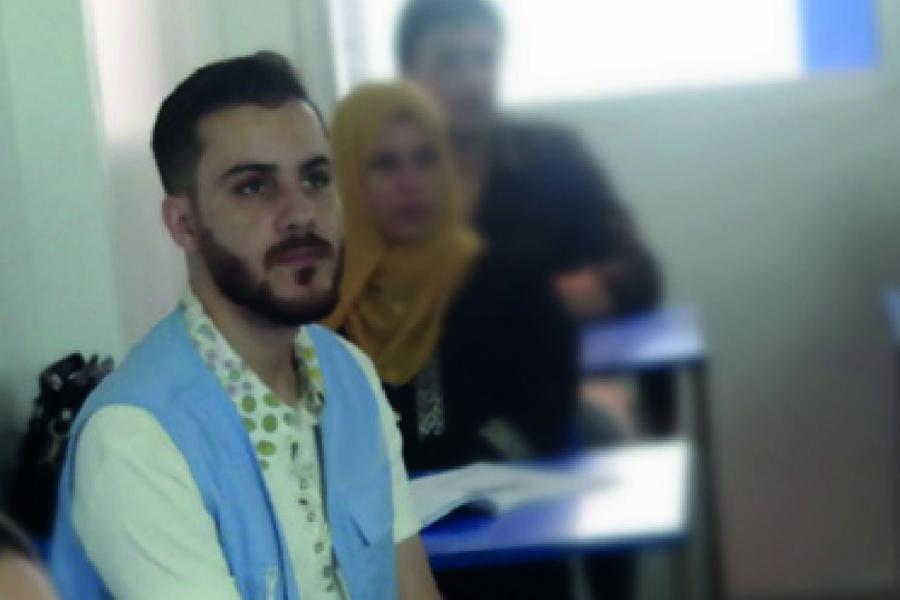
“One must never let failure stop oneself from achieving greatness.”
After the war erupted in Syria, Mohammad moved to Jordan with his family in 2013. Six years later, in 2019, he started studying business and enrolled in a vocational training programme run by UNESCO. During his studies, Mohammad started to develop initiatives to support other refugees in Jordan, such as an e-learning platform he launched that targets youth in refugee camps, teaching them skills in business, digital marketing, and self-development. In 2020, Mohammad completed his studies and got a certificate in Business Discipline.
Soheir
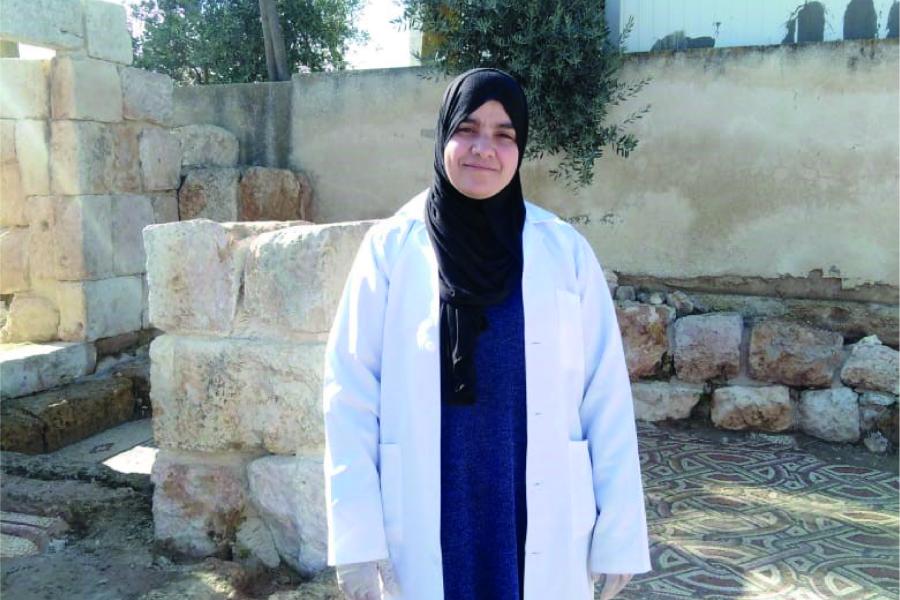
Soheir’s family home and business in Syria were destroyed by a shell.
At the beginning of the Syrian crisis, a shell destroyed the house and the electronics store that Soheir's family owned in Daraa and caused her a minor injury. She fled for Jordan, and is now helping safeguard Jordan’s cultural heritage. She says that joining the heritage project has given her valuable experience and an income. Soheir wants to use what she has learned about ancient mosaics restoration to create industrial mosaic panels to sell via social media.
Asma
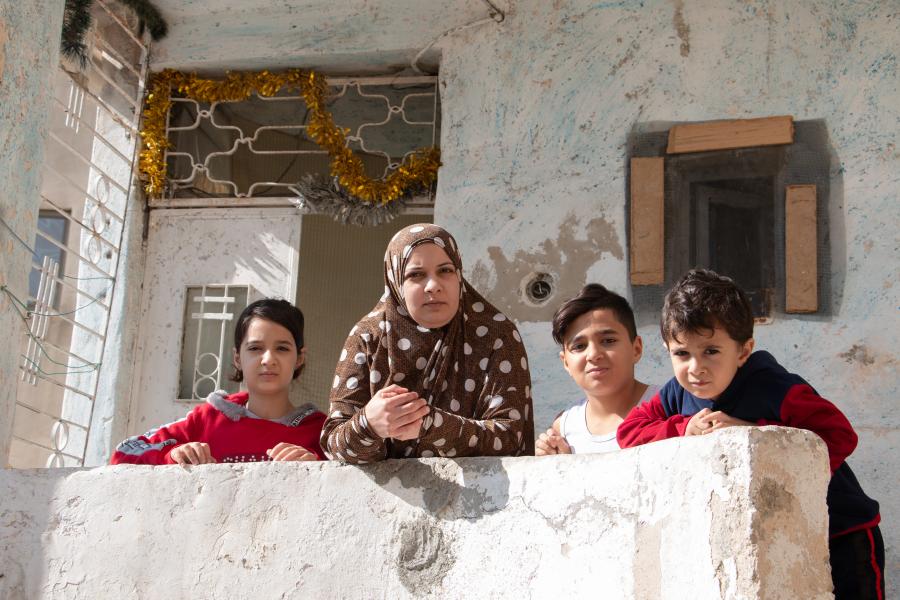
“I wish our family could reunite one day.”
Asma, her husband, and their three children left Syria for Jordan in July 2012. Before the war, the family had a good life in Syria — a home, good health, and children with dreams. “I almost lost my youngest boy because of an airstrike,” says Asma. “It was clear that this was not home as we know it anymore.” Asma’s 70-year-old mother stayed behind. “It is heart-breaking to know that we cannot do anything to support her,” says Asma. “I wish our family could reunite one day.” A herniated disc has left Asma’s husband Mohammed unable to continue his work as a painter. The family is among the 17,000 Palestinian refugees from Syria now in Jordan who are receiving assistance from the United Nations Relief and Works Agency (UNRWA).
Haifa
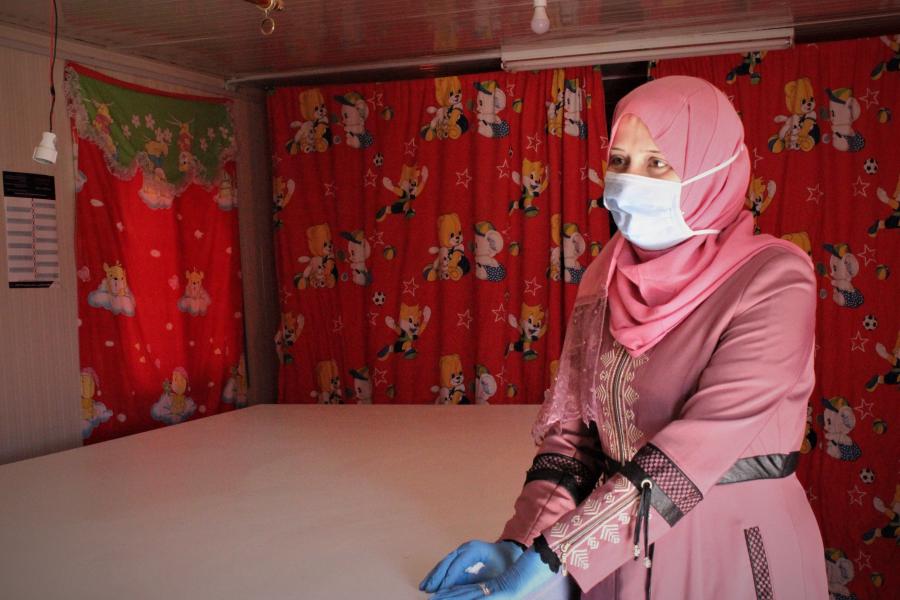
“We all have a role to play in supporting and lifting others.”
In 2014, Haifa, 33, travelled from Syria to Jordan with her six children, to reunite with her husband. Soon after arriving, “my husband started to hit me,” she says. “I wanted to get a divorce, but this would have meant leaving my children behind.” Her husband remarried and moved out. With no education or work experience outside the home, Haifa had limited opportunities. Things got worse when the pandemic hit. “Trapped all day in my caravan,” says Haifa, “I began feeling very depressed and sick all the time.” In July 2020, she joined the UN Women’s Oasis Centre, a livelihoods programme. She was appointed as a tailoring supervisor and master cutter. “I believe everyone is a potential leader,” she says. “We all have a role to play in supporting and lifting others.”
Produced by UN Jordan. Collection of profiles adapted from stories written by UN agencies, funds and programmes in Jordan. Edited by Paul VanDeCarr, Development Coordination Office.








